
The Business of Fashion
Agenda-setting intelligence, analysis and advice for the global fashion community.

Agenda-setting intelligence, analysis and advice for the global fashion community.
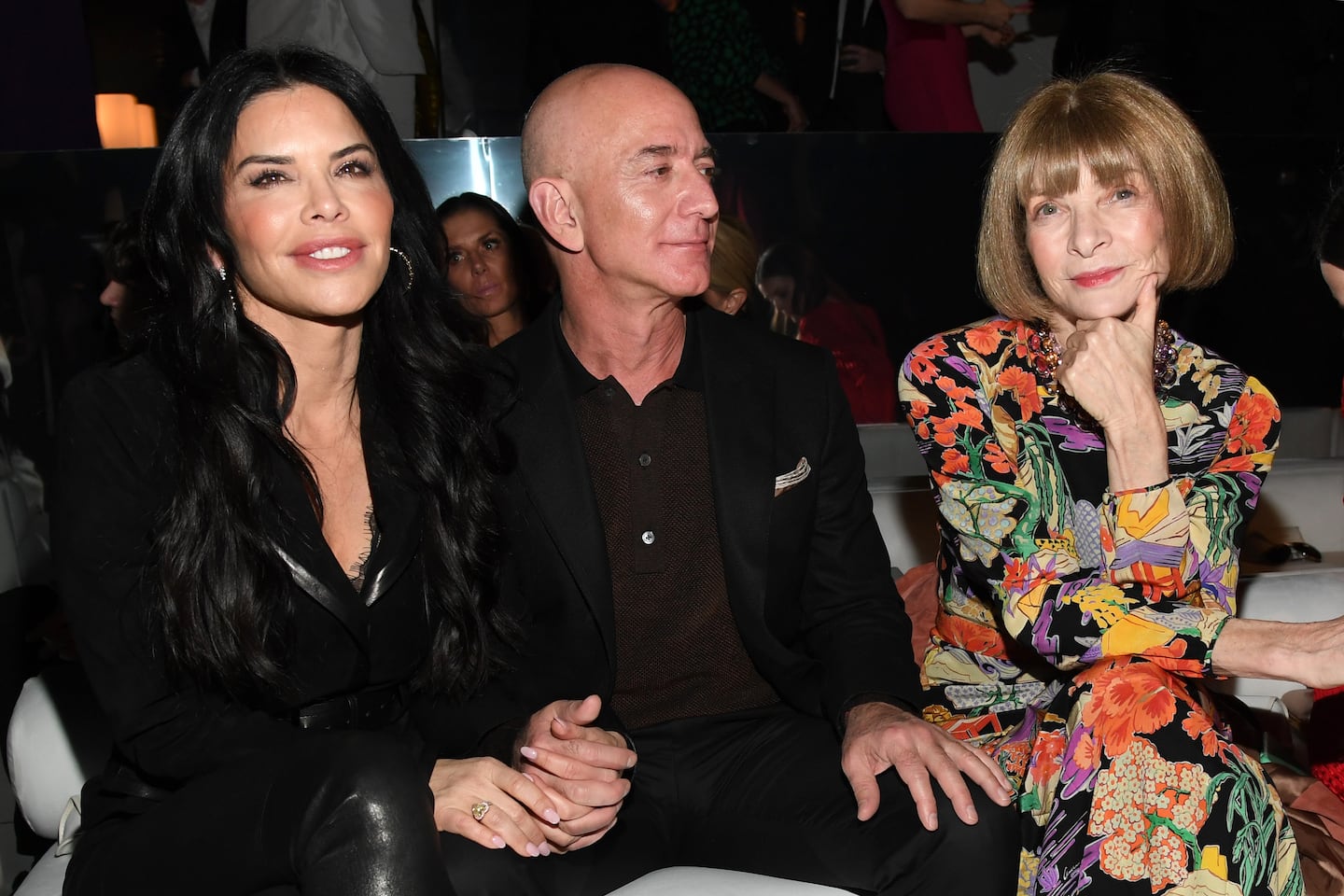
The information technology revolution has generated tremendous human progress and prosperity. But in recent years, a sector once seen as enlightened has revealed its dark side. Silicon Valley’s techno-utopian dreams have unleashed nightmarish phenomena from “surveillance capitalism” to the fake news epidemic, prompting calls for better regulation.
In business, more industries are being run on software and delivered as online services, from movies (Netflix) to taxis (Uber) to retail (Amazon), driving incredible new value creation. But these same advances are laying waste to old business models and incumbent players big and small, while putting awesome power in the hands of a few major technology giants.
At first glance, fashion appears relatively insulated from disruption. Algorithms are still no match for human intelligence when it comes to picking clothes people want to wear, and Amazon’s attempts to gain traction in the luxury market have largely failed.
And yet Amazon long ago surpassed department store Macy’s as the top US apparel retailer and hundreds of high-end brands have flocked to Alibaba’s Tmall to reach China’s luxury-hungry shoppers. Google and Facebook now dominate digital advertising to such a degree that the market has essentially become a duopoly, crippling legacy media players like Condé Nast.
ADVERTISEMENT
Is big tech a threat to fashion?
It’s a question that kept coming up this week at BoF VOICES, as experts, from media analyst Michael Wolf to venture capitalist Roger McNamee to retail guru Doug Stephens, said fashion was indeed at risk from what Stephens called the “apex predators” of the digital era.
The pandemic has been a powerful catalyst for big tech players, making them stronger and meshing them more deeply into people’s lives. While some see the rapid digitization of consumer behavior as a mere acceleration of existing trends, others see a step change.
“I see Covid-19 as a unique wormhole in time,” said Stephens. “Society as a whole has been pulled out of the industrial era and across the threshold of the digital age.”
According to data presented by Wolf, three tech giants account for more than half of global e-commerce spending: Alibaba, Amazon and JD.com. And the rise of social commerce and livestream shopping will only play in their favour as they out-innovate or acquire competitors.
“There is no question that platforms like Alibaba and Amazon can enable brands to connect with vast audiences of consumers,” said Stephens. “But that access comes at a price.”
When fashion labels partner with large tech companies they often relinquish control over the customer experience and how their brand appears, while giving up critical data. Amazon — which has private-label brands in apparel, jewellery and footwear — has even used data from sellers on its marketplace to launch its own competing products.
“These guys won’t kill you tomorrow, but they will kill you in 5 years,” said McNamee, an early investor in Facebook and onetime Mark Zuckerberg mentor who later became disenchanted with the company and, last year, wrote Zucked: Waking Up to the Facebook Catastrophe.
ADVERTISEMENT
These guys won’t kill you tomorrow, but they will kill you in 5 years.
“Do everything you can to maintain a direct relationship with your customer,” he advised. “You cannot concede to internet companies the primary access to your audience.”
“You need to stop adopting each new platform assuming somehow Instagram will save you from Facebook, TikTok will save you from Instagram. Until the [fashion] industry starts to create its own ways of communicating, you’re going to have a problem,” McNamee continued, asking why Vogue hasn’t become the primary consumer destination for digital fashion shows, for example, ceding the space to the likes of Instagram and other social media platforms.
In luxury e-commerce, Richemont chairman Johann Rupert has long advocated for a shared industry platform with the scale to rival the tech giants. “Yoox on its own, Net-a-Porter on its own, Richemont on its own — and I said to Arnault the other day, ‘Forget it!’ — LVMH on its own. We’re not big enough,” he said at the Financial Times Business of Luxury Summit in 2015.
In November, Richemont invested $300 million in Farfetch, a move some see as a precursor to a merger with the Swiss conglomerate’s Yoox Net-a-Porter unit, something Rupert had not ruled out.
And yet central to the deal is an alliance with Alibaba, which has also pumped $300 million into Farfetch. Richemont and Alibaba have invested an additional $250 million each into a new joint venture, Farfetch China, which will see Farfetch open shops on Alibaba’s luxury platform Tmall Luxury Pavilion, its luxury outlet platform Luxury Soho and its cross-border marketplace Tmall Global, quickly expanding Farfetch’s reach in the world’s largest luxury market.
“Creating new tech is dead easy and there are many people that will help you to create platforms that give you the primary voice,” countered McNamee, though the digital shake-up at luxury sector leader LVMH earlier this week suggested this may be easier said than done.
Some brands have shown it’s possible to break free from the big tech trap, however. Last year, Nike pulled the plug on a partnership with Amazon, doubling down on a direct-to-consumer strategy built around its own e-commerce channel, theatrical flagships and a suite of apps with content and community features to keep customers (and their data) close.
Here, Nike flexed a key advantage over tech goliaths like Amazon: storytelling. Nike is a cultural brand with stories about human potential that people care about and want to engage with. The same is true of many fashion brands, which ultimately sell cultural meaning.
ADVERTISEMENT
Even small brands can adopt a version of this tactic, building a following on the strength of their storytelling without becoming overly reliant on big tech platforms to reach audiences, though this may preclude the kind of rapid growth that venture investors like to see.
“The fashion industry has a superpower,” said McNamee. “You’re actually connected to culture. People want to hear what you think.”
Ultimately, the ability to generate authentic storytelling experiences that people seek out may be fashion’s most powerful defense against big tech.
THE NEWS IN BRIEF
FASHION, BUSINESS AND THE ECONOMY
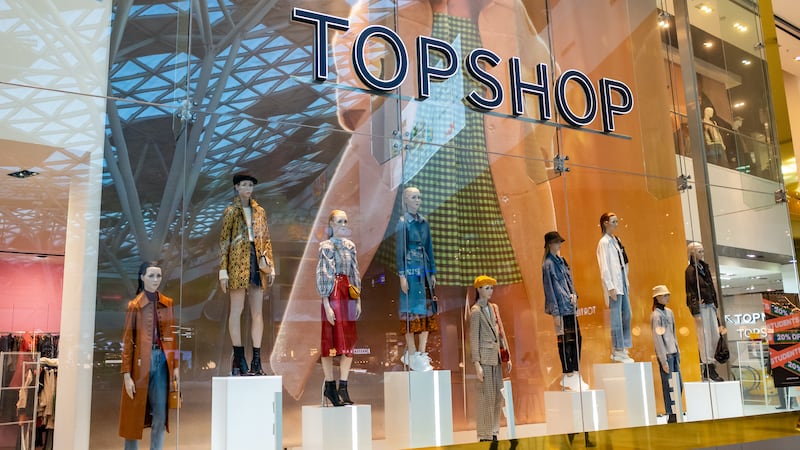
British high street in crisis as Arcadia, Debenhams collapse. The Topshop-owner entered administration this week, while Debenhams is facing liquidation after negotiations to sell to JD Sports fell through. The retailers’ decline threatens thousands of jobs and represents a severe blow to the already ailing UK sector.
Global retail sales expected to drop 16 percent in 2020. The impact of the pandemic will not, however, be felt equally. North America and Western Europe are expected to see sales decrease by 20 percent and 19 percent respectively, and Latin America is anticipating an even steeper annual decline of 22 percent, according to a new report by by Euromonitor.
China to overtake the US as the world’s largest consumer market “very soon.” This was what Lian Weiliang, deputy chairman of China’s top economic planning agency, told the China Reform Forum over the weekend. Lian cited the fact that China’s retail sales surpassed 40 trillion yuan ($6 trillion) for the first time in 2019. According to the US Census Bureau, the country’s retail sales totalled $6.2 trillion in 2019.
Under Armour launches Steph Curry brand in shot at Nike’s Jordan. Curry Brand will feature footwear, apparel and accessories, with an unspecified percentage of its revenue to be “invested in under-resourced communities,” Under Armour said. The brand intends to create at least 20 safe playing spaces, support 125 youth-athletics programmes and train 15,000 coaches by 2025.
Barneys New York to return in 2021 after pandemic delays revival. The first two stores are set to open in the first quarter, more than a year after Barneys declared bankruptcy and began shuttering its locations. One will be inside Saks Fifth Avenue’s flagship in Manhattan, and the other will be a small standalone shop in Greenwich, Connecticut.
Moncler to stage Genius show in China in pandemic pivot. Chairman and CEO Remo Ruffini called the move a “software update” to the Italian skiwear brand’s marketing strategy, designed to harness momentum in the critical Chinese market.
De Beers plans to clean up diamond supply chain and be carbon neutral by 2030. The move comes as investors put pressure on companies to be environmentally and socially responsible. The initiative is the latest example of a miner setting sustainability goals in an industry blamed for depletion of natural resources, smuggling and child labor in supply lines.
Dries Van Noten’s ‘Forum’ and ‘Rewiring Fashion’ join forces to rebuild the fashion system. The two early-pandemic initiatives set out to solve some of the industry’s biggest problems, from rampant discounting to a warped fashion calendar. Working together, they plan on creating a realistic timetable of reforms that aim to allow designers to be more creative, but also run more sustainable businesses.
Fashion makes mixed progress on circularity. Brands missed roughly a third of the goals they set for themselves as part of the Circular Fashion System Commitment that ended this year. Goals focused on design had the highest success rate, but companies struggled to make progress on more concrete changes, like establishing take-back schemes for old clothes or scaling the use of materials recycled from old clothes.
Hodinkee raises $40 million and hires Mr Porter’s Toby Bateman as CEO. The online destination for high-end new and vintage watch fans is aiming to scale its content-meets-commerce model in a challenging watches market. The funding round was led by TCG, the consumer and digital media focused investment firm co-founded by Peter Chernin.
US bans cotton imports from Chinese producer, citing Xinjiang “slave labour.” The move against Xinjiang Production and Construction Corps, which produced 30 percent of China’s cotton in 2015, is the Trump administration’s latest effort to harden the US position against Beijing. China said the move was based on a fabrication.
Nike’s anti-racism ad provokes backlash in Japan. The ad features three teenage girls, one of them a biracial Japanese schoolgirl, battling discrimination but ultimately motivated by a shared love of sport. Many have shown support for the campaign, which has drawn over 14 million views on Nike Japan’s Twitter feed, but some viewers in the country were critical of a global business passing judgement on Japanese social mores.
THE BUSINESS OF BEAUTY
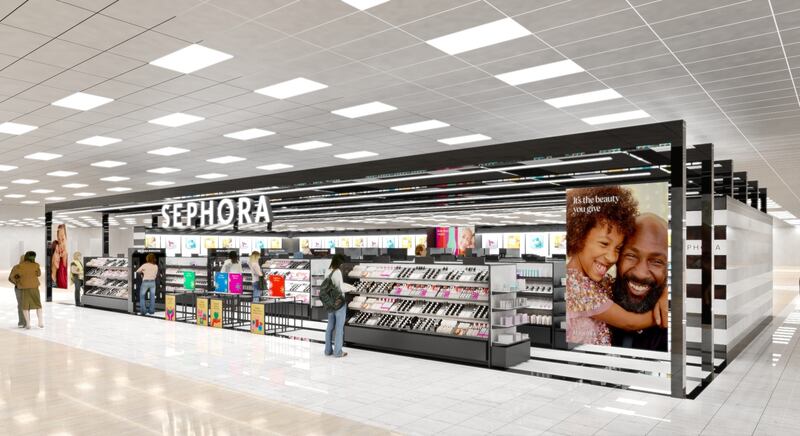
Sephora and Kohl’s team up for long-term retail partnership. Replacing Kohl’s existing beauty offering online and in-store, Sephora will open outposts in 200 Kohl’s stores in autumn 2021, with a view to expand to at least 850 locations by 2023. The shop-in-shops will be staffed by Sephora-trained sales advisors and stock an edit of over 100 brands.
Interparfums raises 2020 revenue forecast to over €340 million. The announcement follows an uptick in business in recent months. The company had to postpone some major launches due to the Covid-19 pandemic, which led to store closures and disrupted supply chains, but has seen a gradual improvement since early July as lockdown restrictions were lifted.
L Catterton invests $150 Million in Function of Beauty. The start-up, known for its customisable shampoo and hair treatment formulas, said it would use the cash to double down on product development, international expansion and manufacturing capabilities. Existing investors CircleUp and GGV also participated in the funding round.
Beauty Bay eyes London public listing. The Manchester-based beauty e-tailer is working with investment bank GCA Altium to explore its exit options, Sky News reported. Following a successful IPO for The Hut Group back in September, a stock market flotation is a likely outcome, but an outright sale could also be a possibility, sources told Sky.
PEOPLE
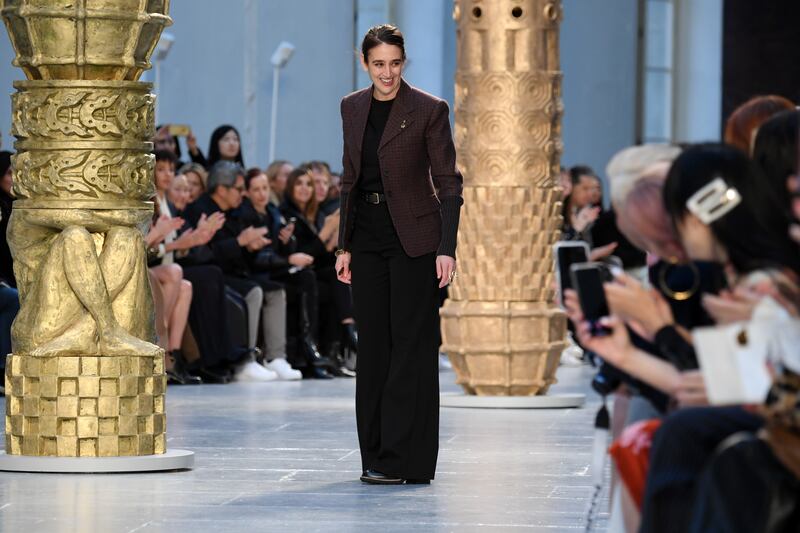
Chloé's Natacha Ramsay-Levi steps down. The designer is leaving the Richemont-owned fashion house after nearly four years at its helm. A new creative director will be named in due course, Chloé said in a statement Thursday. Ramsay-Levi worked to sharpen Chloé's image with an edgier and ultimately less commercial take on the house’s ultra-feminine codes. Her runway collections were broadly well received by critics, but ultimately lacked strong-selling items.
Geoffroy Lefebvre replaces Federico Marchetti as YNAP CEO. Lefebvre, currently Richemont’s group digital distribution director, will take the reins from January 4. Marchetti, who first announced he would step down in March, will remain chairman “to ensure a successful transition,” Yoox Net-a-Porter said in a statement. The moves come as online retailers’ competition to win customers intensifies.
LVMH reshuffles digital team. Chief digital officer Ian Rogers is stepping down to join cryptocurrency start-up Ledger. To help fill the gap, the luxury giant is creating a new role of “chief omnichannel officer,” elevating Louis Vuitton vice president Michael David to the position. Meanwhile, Chris de Lapuente will take on responsibility for the company’s e-commerce site 24S as the new chairman and CEO of the group’s Selective Retailing division.
Michael Bastian joins Brooks Brothers as creative director, Zac Posen exits. After acquiring the American suit maker out of bankruptcy in September for $325 million, joint owners Authentic Brands Group (ABG) and Simon Property Group have named Ken Ohashi as president and designer Michael Bastian as creative director of men’s and women’s. Posen, who served as creative director of the women’s collections since 2014, has exited the business.
Peter Chipchase named chief marketing officer of Stella McCartney. Chipchase joins the luxury brand from Soho House, where he spent seven years as chief communications strategy officer. Chipchase succeeds Caroline Deroche Pasquier, who has left the business. He will report to chief executive Gabriele Maggio, but also work closely with McCartney, as well as the company’s product and commercial teams.
MEDIA AND TECHNOLOGY
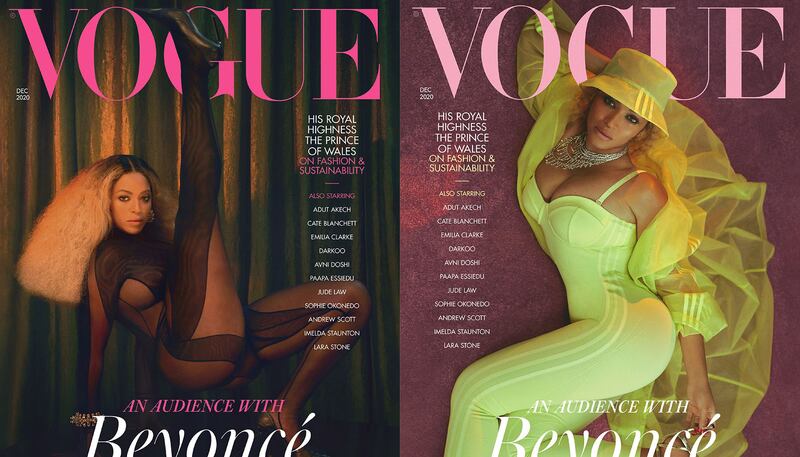
Condé Nast names Natalia Gamero del Castillo managing director of Europe. Following the exit of Wolfgang Blau, Condé Nast president of International and chief operating officer, the publisher promoted the managing director of Condé Nast Spain to oversee European operations (UK, France, Italy, Germany and Spain), reporting directly to chief executive Roger Lynch.
The Face names Matthew Whitehouse editor. The former culture editor for i-D has served as The Face’s deputy editor since the youth culture-focused magazine relaunched after a 15-year hiatus 18 months ago. He takes over from Stuart Brumfitt who left in October. Whitehouse’s first issue as editor is set to go on sale next week, and stars singer Jorja Smith.
British Vogue announces publishing team shakeup. Michiel Steur, formerly head of special projects, will take on the role of acting associate publisher of the magazine, effective January 2021. Alexis Williams has been named international fashion advertising director, while Madeleine Churchill has been promoted to creative partnerships director. Steur, Williams and Churchill will all report to publishing director Vanessa Kingori.
Zalando’s Cyber Week sales beat last year by more than a third. Zalando added more than one million customers during the sales period with gross merchandise volume growing by 35 percent. Zalando wasn’t alone in securing a record number of sales. Amazon said independent businesses selling on its platform crossed $4.8 billion in worldwide sales from Black Friday through Cyber Monday, an increase of more than 60 percent from a year earlier.
Compiled by Daphne Milner.
BoF Professional is your competitive advantage in a fast-changing fashion industry. Missed some BoF Professional exclusive features? Click here to browse the archive.
Successful social media acquisitions require keeping both talent and technology in place. Neither is likely to happen in a deal for the Chinese app, writes Dave Lee.
TikTok’s first time sponsoring the glitzy event comes just as the US effectively deemed the company a national security threat under its current ownership, raising complications for Condé Nast and the gala’s other organisers.
BoF Careers provides essential sector insights for fashion's technology and e-commerce professionals this month, to help you decode fashion’s commercial and creative landscape.
The algorithms TikTok relies on for its operations are deemed core to ByteDance overall operations, which would make a sale of the app with algorithms highly unlikely.